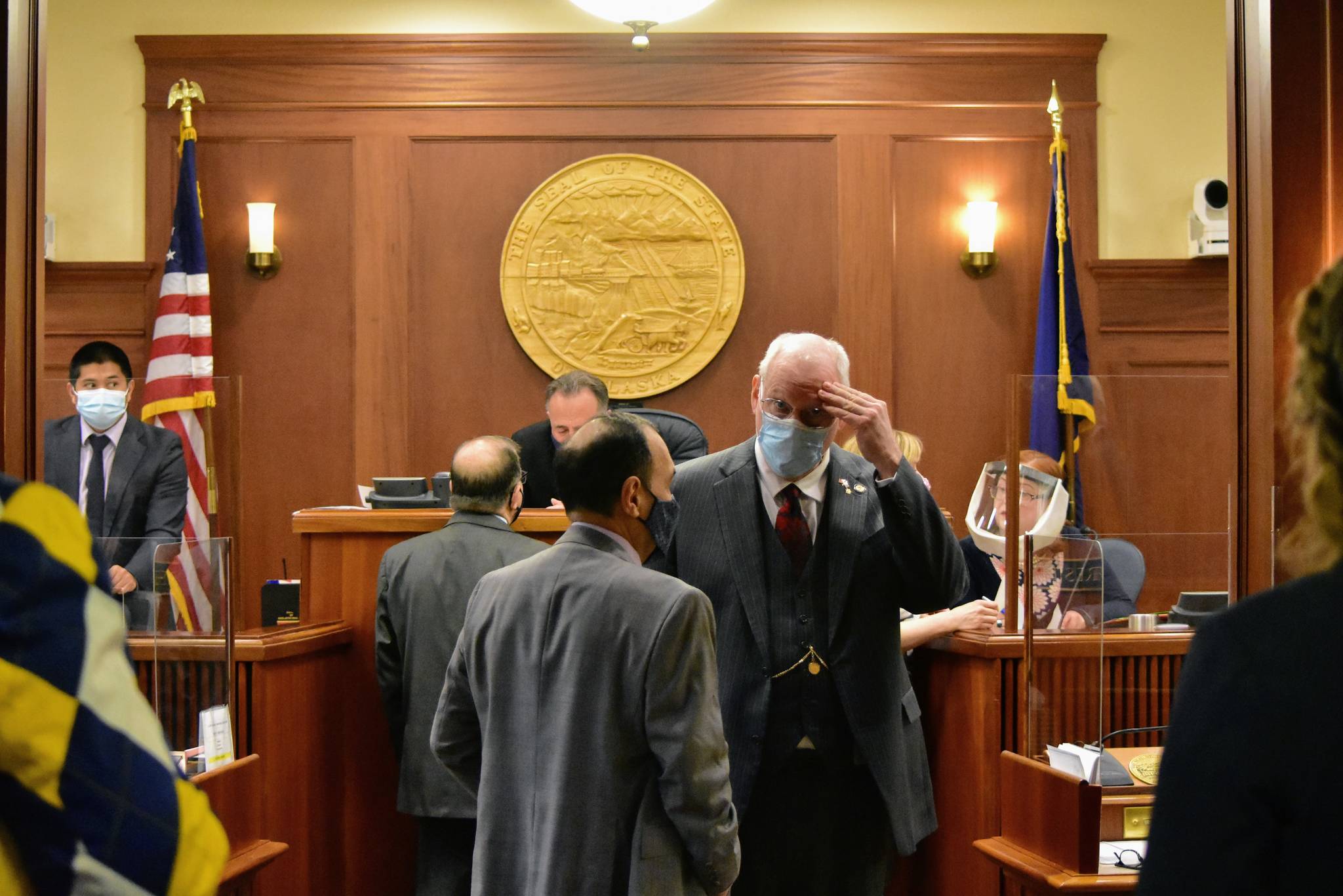Alaska lawmakers took discussion of the state’s disaster declaration into the evening Wednesday, with senators debating dozens of amendments added to a bill to retroactively extend the state’s disaster status.
The emergency declaration has been a divisive issue throughout the pandemic with supporters saying status gives the governor the tools he needs to effectively respond to the crisis such as eligibility for more federal funding. But critics say the disaster is over and the state needs to move toward getting the economy up and running again.
Opponents of the bill, all Republicans, said the emergency declarations have caused irreparable harm to small businesses forced to closed because of health mitigation rules. The state’s disaster declaration lapsed in February.
“People have had enough, (it’s) been a year and a month now, they’re done,” said Sen. Lora Reinbold, R-Eagle River, who has been a fervent critic of the state’s response to the pandemic.
Provisions within the legislation would allow the state to access $8 million a month in funding for the Supplemental Nutrition Assistance Program, also known as food stamps. On April 23, Department of Health and Social Services Commissioner Adam Crum sent a letter to legislative leadership urging them to pass legislation before the April 30 deadline for those funds.
But for many Republicans opposed to the bill, declaring a state of emergency would send the message to residents and people thinking of visiting the state that situation in Alaska is dangerous.
“Perhaps the message we should be sending is that we are in fact in recovery,” said Sen. Mike Shower, R-Wasilla, who opposed the emergency declaration.
[House passes emergency declaration bill]
But Republican supporters of the bill pushed back against those statements. Sen. Bert Stedman, R-Sitka noted that almost every other state still has an emergency declaration in place. According to the National Academy for State Health Policy, a health industry policy group, aside from Alaska only Wisconsin and Michigan have no emergency orders in place.
Noting the continued closure of the Canadian border to the U.S. and resurgent outbreaks of COVID-19 abroad, Stedman said Wednesday, “pretending there’s not a disaster is pretty hard to do.”
Sen. Natasha von Imhof, R-Anchorage, the bill’s sponsor, said the bill did not impose mandates of any kind on Alaskans but only provided the government with the tools it needed to respond to the ongoing crisis.
“This bill does not put into place any statewide mandates; this bill will not force vaccinations; this bill will not close schools,” von Imhof said on the floor. “It allows the state to take advantage of federal dollars in the waning days of this disaster.”
Von Imhof said some of her colleagues were focusing on specific words in the legislation.
“(The bill) has the word ‘disaster,’” von Imhof said. “For some folks in this building that is a trigger word, for others it’s the magic word.”
Over 40 amendments were submitted Wednesday, a number of which were adopted before the bill’s final vote. A range of amendments was submitted, from slight changes in language to changes that would fundamentally alter the nature of the bill.
Sen. Shelley Hughes, R-Palmer, removed an amendment that would have banned transgender boys from competing on boys sports teams in Alaska schools. Hughes removed the amendment, but said her constituents are concerned with the matter.
Sen. Bill Wielchowski, D-Anchorage, offered several amendments, none of which passed, that would have specifically limited certain emergency powers of the governor, saying they were too broad for the current situation.
A number of amendments passed, including an amendment saying a person can refuse a COVID-19 vaccine, which was already the case, and technical changes to language in the bill.
The Alaska House of Representatives included an emergency disaster declaration in its version of the bill, which passed on March 26, despite Gov. Mike Dunleavy saying he no longer believes it’s necessary. The House met Wednesday morning and at the time of publication, members were waiting to hold another session that evening to debate the Senate’s actions on the bill.
In an email, Dunleavy spokesperson Jeff Turner said the governor no longer believes the emergency declaration is productive in fighting the virus. Turner said Alaska has one of the nation’s highest vaccination rates and is assisting Alaska’s businesses and employees in returning to normal.
“The Governor has asked lawmakers to send him pared-down legislation that continues the current vaccination plan, allows the acceptance of federal COVID relief funds and ensures that Alaskans with food insecurity can continue receiving enhanced SNAP benefits,” Turner said.
• Contact reporter Peter Segall at psegall@juneauempire.com. Follow him on Twitter at @SegallJnuEmpire.


